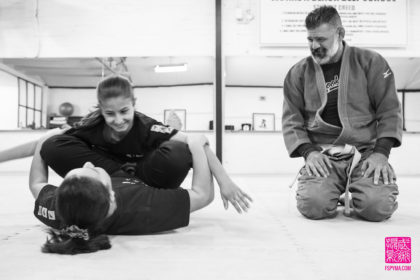
photo by Francine Schaepper
When I started karate there was a sign on the dojo wall that said, “Only one in every ten thousand people who join the martial arts will get their black belt”.
I remember thinking to myself at the time, “Not very many people make it.” And then I thought…
“That’s a lot of people failing. Who’s teaching them so poorly?”
Today, you don’t see that sign anymore. Instead you find, for instance, Facebook memes that pop up and say something like, “Ordinary people never get their black belts.”
As a more mature practitioner now, I’m embarrassed that my peers – other black belts – still put out messages like that.
See, my claim (and my experience!) contradicts this notion…
I submit that it’s our entire job to get “ordinary” people to black belt.
See, it’s not a very big deal for someone who’s extraordinary to do something remarkable. Actually when you consider it, that’s just a minimum standard, a baseline level of success.
Our real job as instructors is to help “ordinary” people to do something extraordinary. And before anyone starts to worry that such an activity would only mean “making it easier”, that’s not what we’re about.
It’s not to do it for them, or to make it convenient…but to help them to do it themselves.
Now, taking a so-called “ordinary person” and helping them to undergo an extraordinary transformation, or to develop extraordinary skills is one thing. To me that’s what we as teachers have signed up for.
But the idea that someone needs to “be extraordinary” to rise through the ranks is misleading.
On top of that, it’s not the instructor’s job to reward high-performers and then excuse away their poor behavior because we think they’re extraordinary and deserving of extraordinary rewards.
(As an aside – look around and you’ll see this happening in modern professional sports and entertainment. Organizations turn a blind eye to illegal or unscrupulous behavior because someone’s “extraordinary.” In the end, it creates a double-standard by relaxing morals and ethics in the name of achievement.)
This sort of mindset – that ordinary people can’t get to black belt – marginalizes the so-called “ordinary” person. Instructors cast them as weak or soft, and when they quit we say that they just couldn’t cut it. They fall into the 9,999 people who were never meant to reach black belt.
In the dojo, it’s an embarrassment to think that we’re so elite that we end up pushing away the people who need the martial arts the most.
Bottom line: when we move beyond a mindset that says only the strong survive, we can see that each member of the classroom is valuable and deserves the martial arts as much as anyone else.
It’s not the norm – though if I had my way it would be – but there is a solution. For now, we can at least recognize that saying something like “ordinary people never get their black belt” might sound good, but it’s just a rhetorical trick. It undermines the meaning, mission and value of martial arts training.
So for everyone in the room who makes a place for everyone in the room, I contend that you’re fulfilling the mandate of the masters. Our work – to help “ordinary” people do something extraordinary – matters a lot.
For more about our larger project of cooperative Jiu-Jitsu and martial arts training, visit the Brooklyn Brazilian Jiu-Jitsu (Brooklyn BJJ) website here.
Contact Gene Dunn here and Brian Glick here.
Thank you for sharing this. I remember hearing that Carlos Gracie said something to this effect, and that he modified all the old techniques so HE could use them since he was smaller than most. He said that he wasn’t better than anyone else, but he learned what he needed to learn in order to do everything he could. It wasn’t about being superior at the start.
Great message. In the military they say “no one is special” – there are no “Kobe Bryants” in the field, and there isn’t one key member who can “win” the mission single-handedly. A sort of needing to feel special really undercuts the importance of seeing ourselves as connected part of the group. Thanks
This is fantastic. I think most people see themselves as normal or ordinary. I know I have most of my life. I love that this reminds us that the goal is to do extraordinary things, things we might have thought impossible. Also to help others do those things too. It reminds us to help people feel included and excluded.